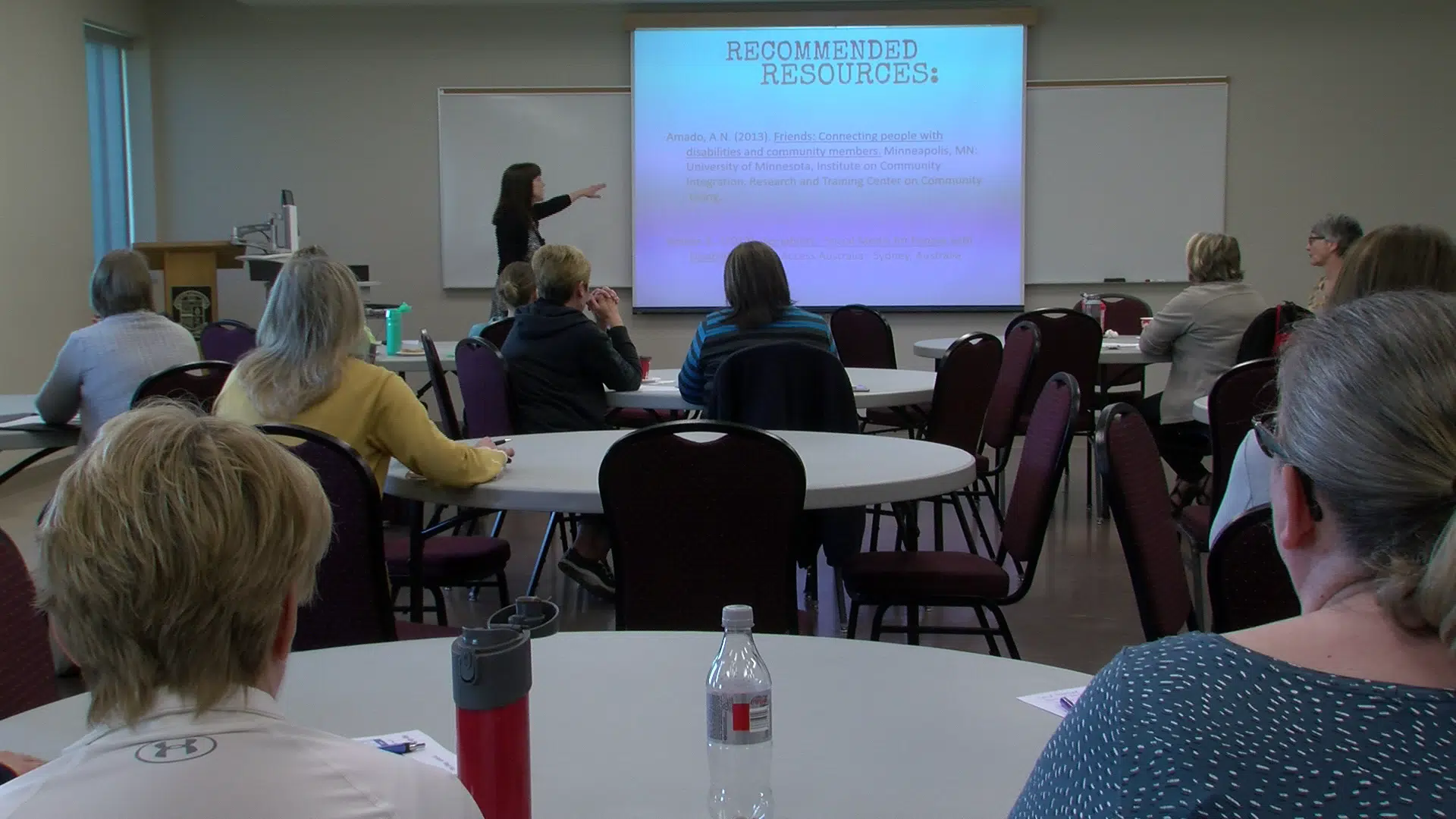
Setting up those with developmental disabilities for life after high school
MEDICINE HAT, AB – Living with developmental disabilities can have its challenges, but is no reason to not have a good quality of life.
That was the theme of yesterday’s ‘Life After High School’ event hosted by Inclusion Medicine Hat.
“What we’re trying to do is give parents a picture of the full inclusive life that their children with developmental disabilities can live,” explained Inclusion Medicine Hat president, Monica Braat. “So, we looked at every element of a good adult life.”
The session focused on four major elements which included:
